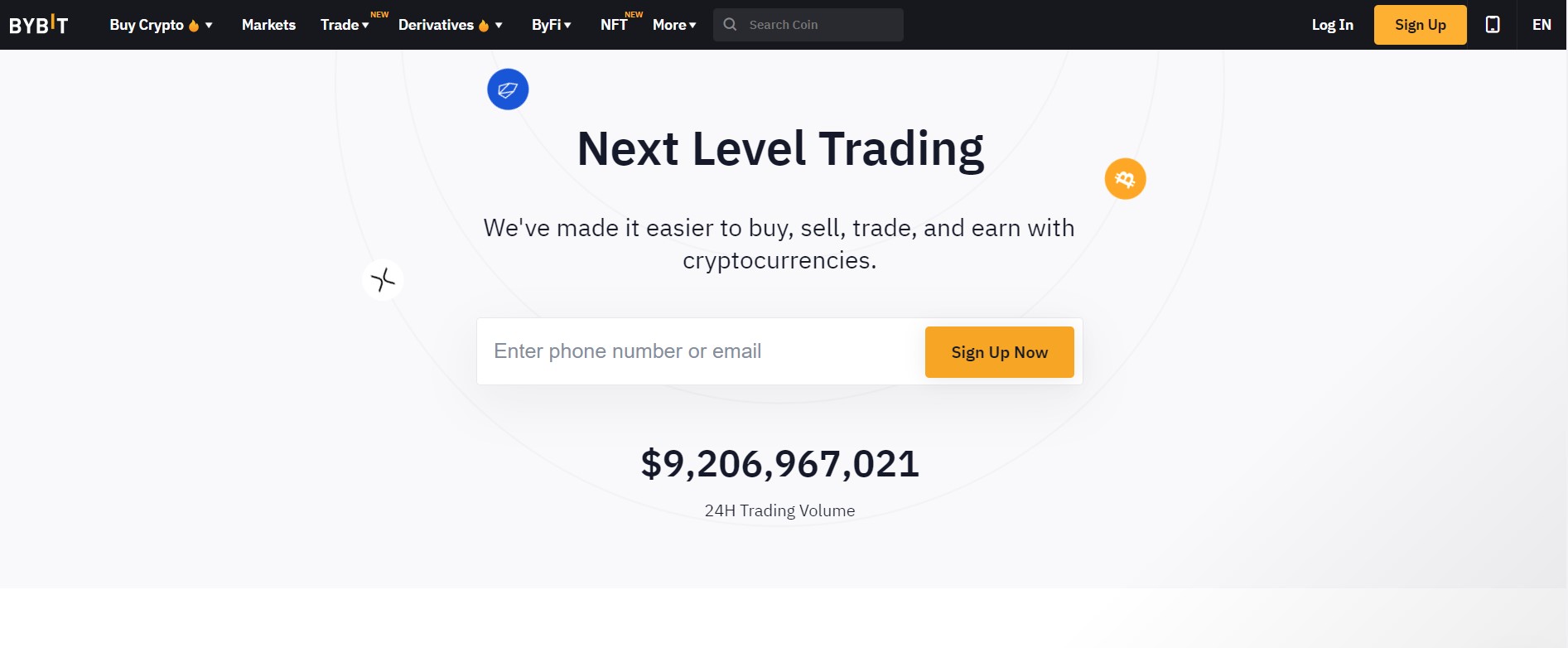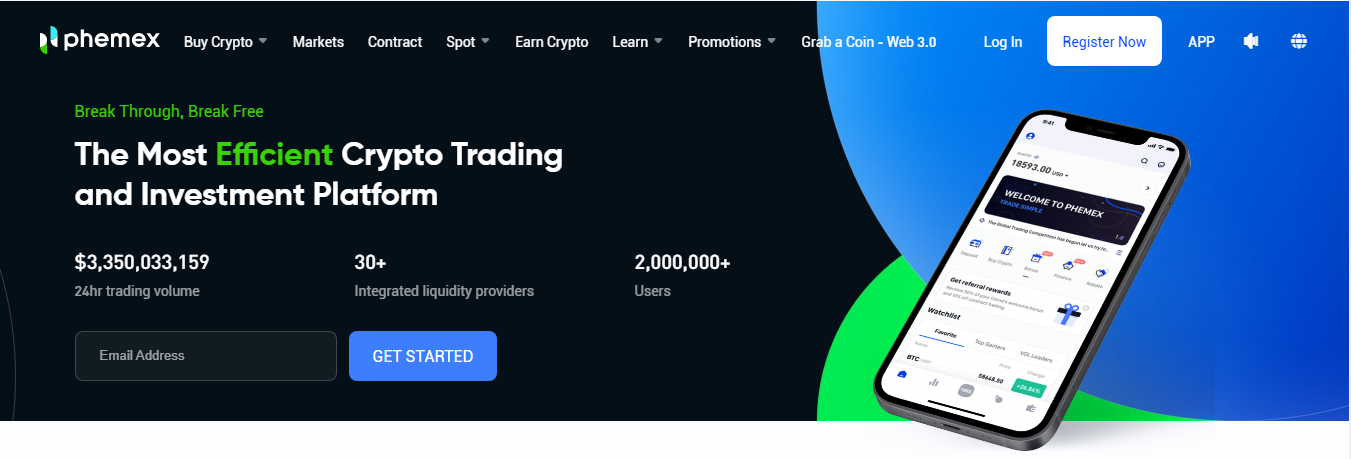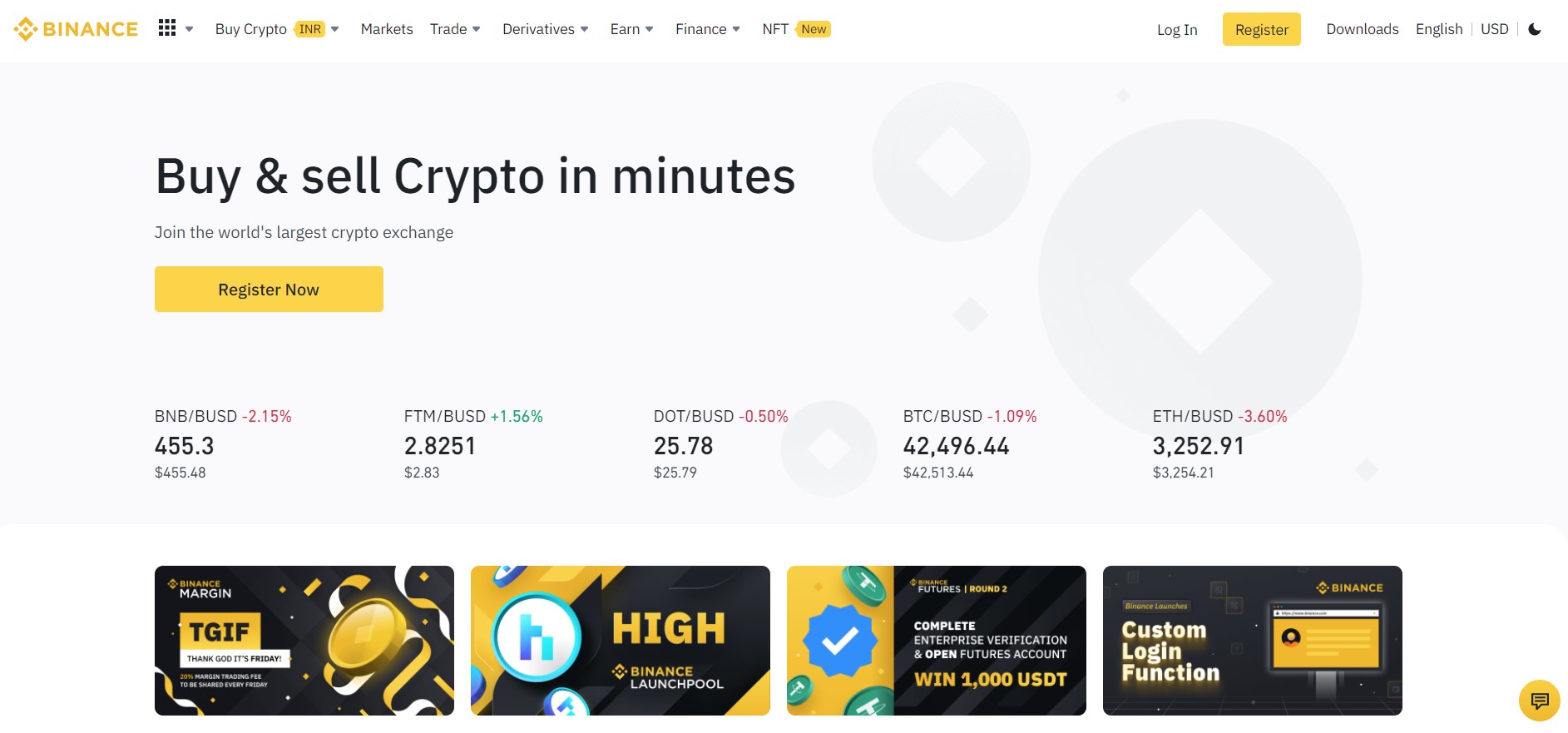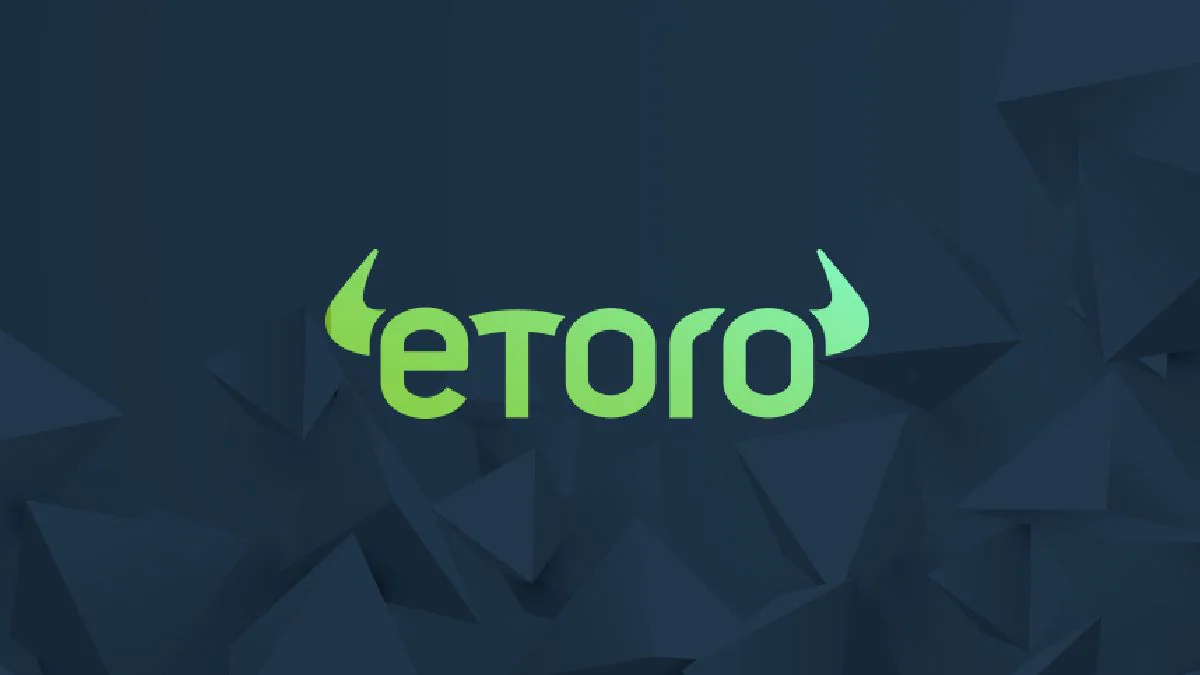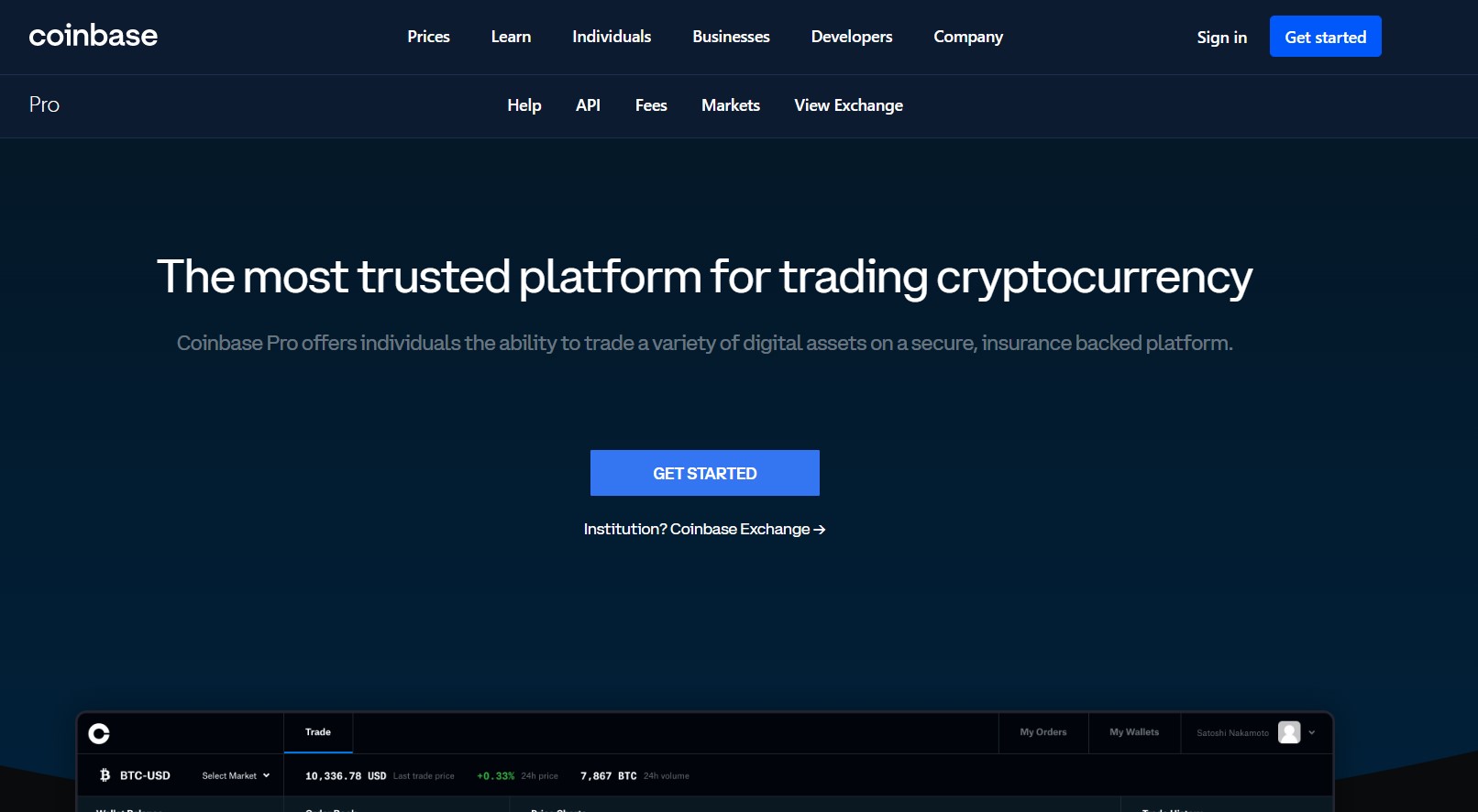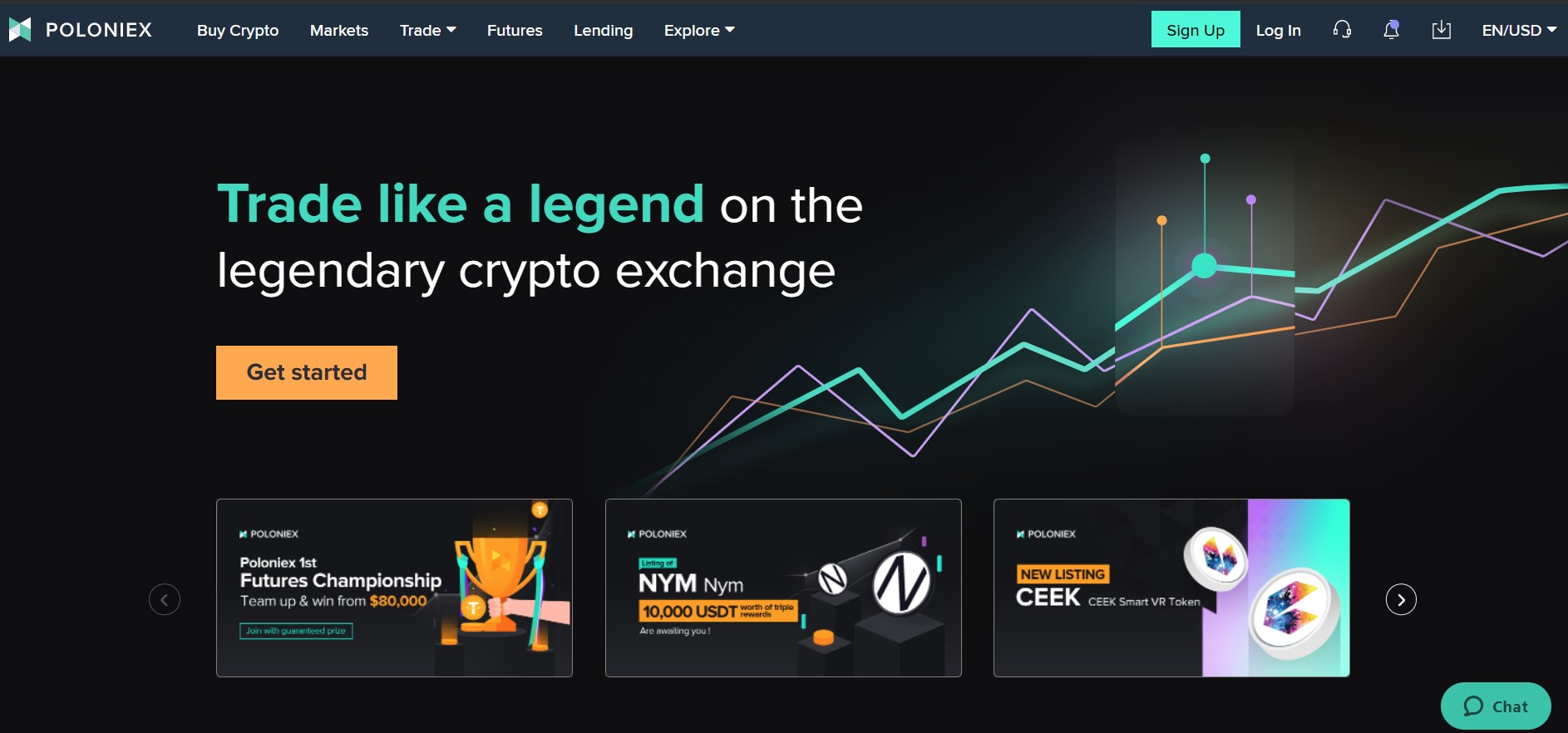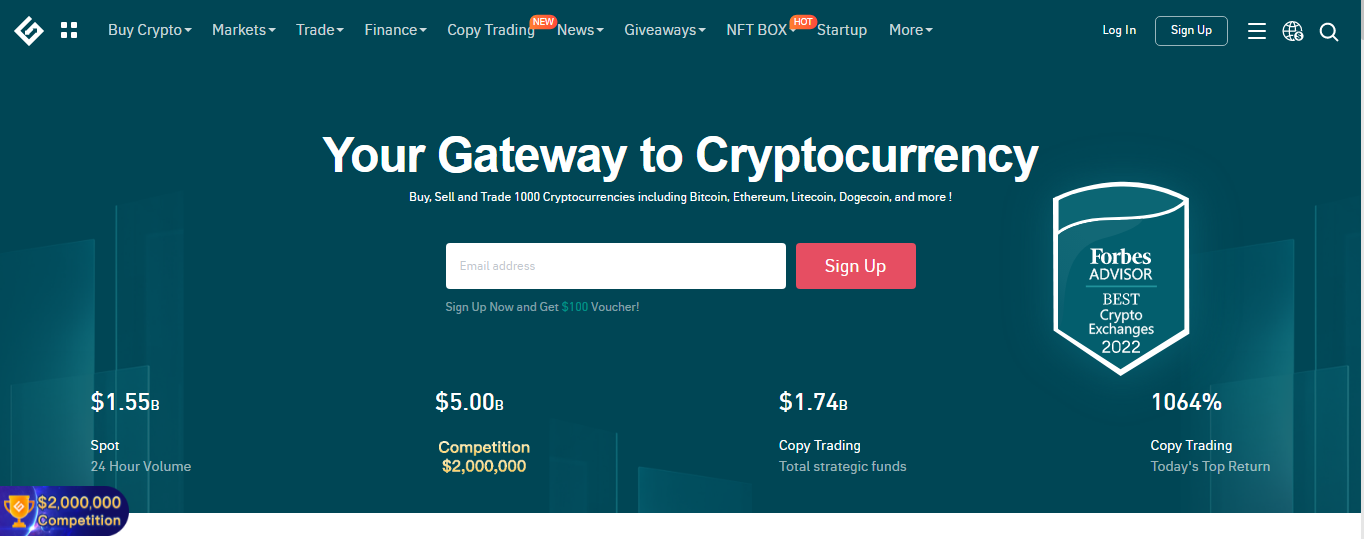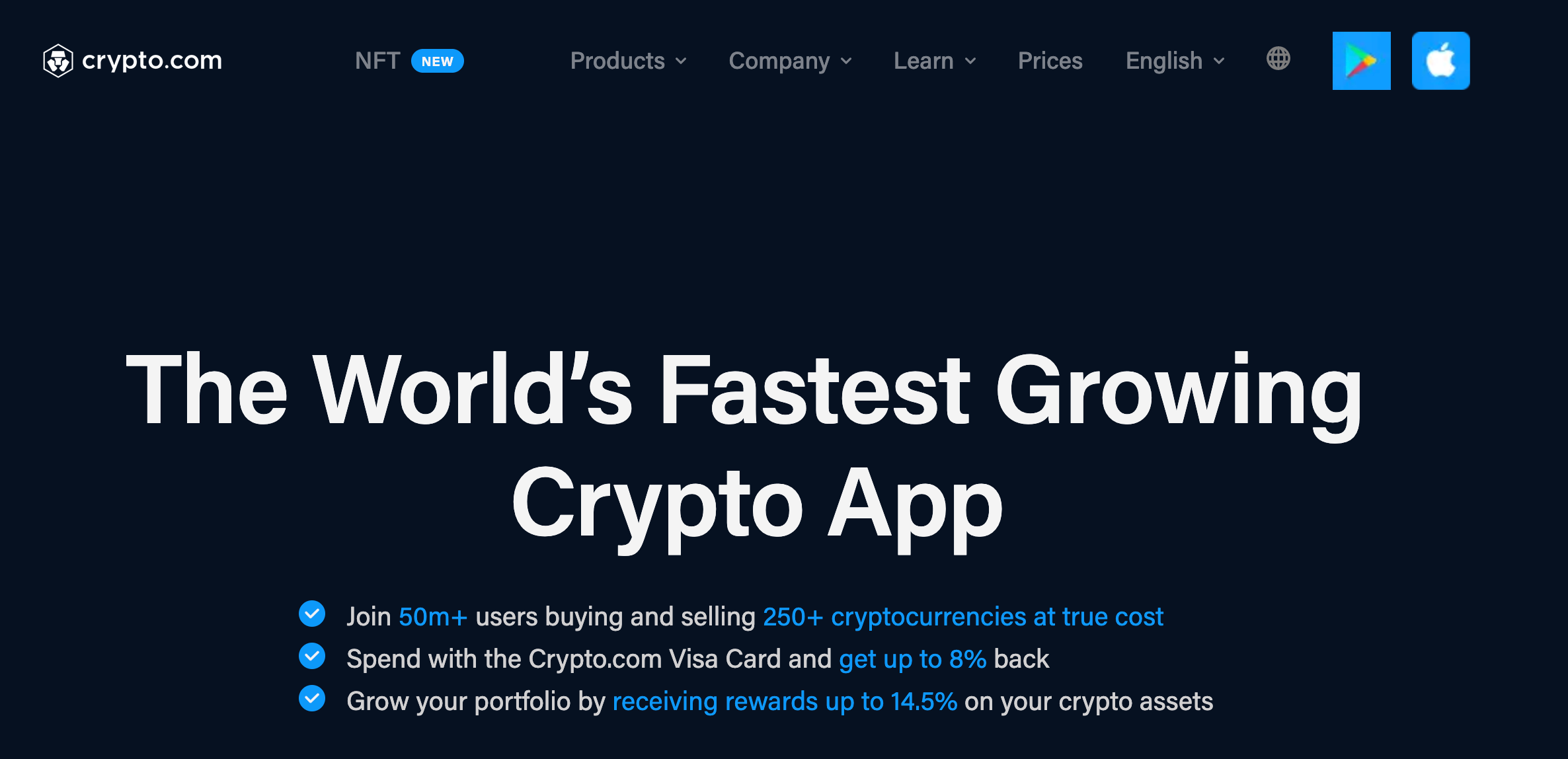As an avid day trader myself, I understand the importance of choosing the right crypto exchange. It can make all the difference in whether your day trading journey is smooth sailing or filled with roadblocks.
Speed, liquidity, and reliability are just a few factors that a day trader needs in a platform, but the list doesn’t end there.
In this article, I’ll be introducing you to the best crypto exchanges for day trading, based on my experience and extensive research.
Strap in, because we’re about to dive into a world of high-speed trading, more advanced trading tools, and potentially high returns.
Best Crypto Exchanges for Day Trading
- Bybit
- Phemex
- Binance
- eToro
- Coinbase Pro
- MEXC
- Poloniex
- Gate.io
- Crypto.com
- Bitget
- Stormgain
- Delta.Exchange
#1. Bybit
For the purpose of spot trading, the maker/taker fee starts at -0.01%/0.03% and can be brought down when you reach the Pro 3 VIP level.
Keep in mind that the crypto exchange has made it mandatory for both new and existing customers to complete the KYC process to be able to trade crypto.
Bybit offers a trading bot that both beginner traders and experienced traders can use to passively follow another trader’s strategy according to their pre-set conditions.
Your bots can then complete automatic trades on trading platforms, like TradingView. You can use it to make money off of any of the 100+ currencies available here.
Your trading volume (trailing 30-day) decides what VIP level you are in.
If your trades total less than USD 10 million, you are a non-VIP, and USD 10 million – USD 25 million in trades gives you the VIP1 tier. The highest tier is Pro 3 and requires you to trade >= 600 million USD.
The number of trading pairs is limited, and the volume numbers cannot be verified owing to the lack of transparency on the part of the platform.
What makes the platform attractive is the high leverage, the market maker rebate, a mobile app to trade on the go, support for a large number of fiat currencies, and an insurance fund to cover risk and mitigate losses.
To learn more, check this comprehensive Bybit review.
#2. Phemex
You need to have more than 1 million USD in trading volumes for the last 30 days to be at the VIP1 user level and pay a lower maker/taker fee. Anything less than that keeps you at VIP0 level and charges you 0.06%/0.01%.
The platform supports 34 cryptocurrencies and 37 for contract trading and they have managed to gamify the trading experience.
You need to band together in a team that has a minimum of 10 members and no maximum number of members.
The website details that the platform uses 78% of the low fees to pay the awards for the top teams and 40% of the team’s awards go to the captain, 30% to the top 10 team members, and the rest of the 30% is shared between the rest of the team.
With 100x leverage trading, you can make your profits quickly if you have confidence in the trading strategy.
The low trading fees and lack of mandatory KYC also makes it easier for traders who are looking to stay incognito while still being able to earn money.
Currently, they do not offer any kind of borrowing and lending services against crypto funds or fiat currencies that you have stored in your Phemex wallet, but there are plans to introduce the same soon.
Also, keep in mind that you will have to jump through the KYC hoops to be able to use the crypto exchange effectively. To learn more about the exchange, here is a detailed Phemex review.
#3. Binance
As a day trading platform, Binance is right up there as is the case with any other lists regarding crypto exchanges. The platform has low fees of 0.0108%/0.027% per transaction, and it can further be decreased based on your trailing 30-day trading volumes.
You can get a further discount of 25% just by holding BNB (Binance’s in-house cryptocurrency) in your wallet. Referring friends to Binance can help you earn a further 100 USDT kickback for both the referred friend and yourself.
For the privilege of buying, trading, and holding more than 350 cryptocurrencies using the multiple supported fiat currencies.
If you are willing to pay the high fees of 3-4% to the platform, you can also add fiat currency via your debit/credit card to your wallet and help facilitate the buying of and selling of crypto coins.
If you have crypto in a wallet, or on some other cryptocurrency exchange, you can simply deposit it here by getting the wallet address from the platform.
Binance Futures also has one of the best crypto charting tools apart from being an exchange. You can perform your technical analysis with advanced charting tools, set different order types, and trade from the same screen.
The new day trader has the option of keeping the Classic platform view which is to help you get acquainted with the platform. If you need the advanced trade types and the charting tools, just switch to the Advanced platform, which has all you need.
Something to consider before deciding is that Binance’s customer support is available 24/7, but you can only contact them via raising a ticket or the live chat.
If you want to trade futures and other derivatives, you will need to keep your KYC documents handy.
#4. eToro
eToro will charge you a flat 1% fee on any trade that you make for crypto. This is high when compared to the other crypto exchanges on the list.
But then the platform makes up for it with the lack of commissions. It also has 60+ currencies, including the obvious suspects of Bitcoin and Ethereum.
The firm is regulated by the FCA, ASIC, and CySEC, is registered with FINRA, and has one of the largest user bases.
This is mostly down to the fact that getting started takes minutes, and you get access to a lot of the crypto assets and coins apart from other asset classes like stocks.
Their copy trading feature allows you to enter and exit trades based on the experienced eToro trader that you choose to ‘copy trade’.
This feature does not come with any additional fees other than the 1% flat fee mentioned above that is charged for entering a trade, and a further 1% when you exit the position.
While deposits are free, a $5 withdrawal fee is charged for a minimum withdrawal of $30. Platinum, Platinum+, and Diamond club members, though, are exempt from this fee.
If you don’t log in for more than 12 months, you are charged $10/month, but no open positions of yours are closed to cover this.
If you need to practice your day trading strategies before putting actual money on the line, eToro’s Day Trading simulator comes with $100,000 in a virtual trading account.
One con of the platform is that it does not have the tools to perform technical analysis, which will be a problem for advanced traders or new traders looking to learn the tools of the trade.
Like many other crypto exchanges, it is mandatory for a user to finish their KYC process before using the platform.
#5. Coinbase Pro
Coinbase has more than 35 million people using the website and uses the maker-taker model to calculate the fees for all trades on its website.
As a market maker, you can expect to pay between 0.00%-0.40% depending on your monthly trading volume. A taker, on the other hand, pays between 0.05%-0.60% again, depending on your trading volumes in a trailing 30-day period.
Being one of the top crypto exchanges makes sense as crypto traders will have access to more than 150 cryptos in various trading pairs, and you can use it to earn money with your trading skills.
This fee and the tier that goes with it are recalculated every hour to get you the best rates possible in terms of commission.
If you move fiat to or from the platform via the ACH network, no charges are applied to the transaction. To get money onto Coinbase, you pay a $10 fee for a wire transfer, €0.15 for SEPA, and none for a Swift transfer.
To withdraw the same into your bank account, a wire transfer charges you $25, SEPA charges you €0.15, and the SWIFT network charges you £1.
Ever since it started in 2012, Coinbase has grown in leaps and bounds and is today listed on the NASDAQ exchange even with the multiple regulatory loops to jump through, which come with being a crypto exchange.
The mobile app has been made specifically keeping day traders in mind and enables them to enter and exit positions when they are away from their workstations.
If you are worried about whether the platform is reliable even after the fact that they are a publicly traded company, they hold an e-money license from the FCA (Financial Conduct Authority) in the UK.
And yes, you guessed it, the crypto exchange needs you to comply with their KYC procedures to be able to take full advantage of the available liquidity.
#6. MEXC: A Perfect Blend of Features for Day Traders
If day trading in the crypto world is your thing, then MEXC Global is a platform that can cater to your needs efficiently. It’s a crypto exchange that stands out for several reasons that make it ideal for day traders.
Firstly, MEXC offers a wide variety of cryptocurrencies for trading – over 850 at the last count. This wide selection is perfect for day traders who thrive on diversity and opportunities to exploit price differences.
Secondly, the platform’s user-friendly interface is designed for quick and easy trading.
With real-time charting tools, indicators, and seamless order execution, it provides all the tools a day trader needs to make informed decisions quickly.
Lastly, MEXC offers spot trading and futures trading with leverage up to 100x, which can be highly beneficial for day traders seeking to magnify their potential returns.
However, leverage trading is risky and should be approached with caution.
Trading fees on MEXC are charged in a maker/taker model as 0%/0.01%. This crypto exchange is a curious case where KYC is not mandated, but a large part of the platform is not usable unless you do.
Please remember that while MEXC does make many crypto day trading platforms more accessible and potentially lucrative, the risks associated with crypto day trading are high.
It’s always essential to trade responsibly, understand your risk tolerance, and never invest more than you can afford to lose.
#7. Poloniex
The futures trading fee on Poloniex is fixed at 0.015%/0.05% and is charged in a maker/taker fashion.
There is no deposit fee charged by the platform and the withdrawal fee charged is enough to cover the transaction fee that the blockchain charges to have your transaction go through.
The exchange has more than 500 spot cryptocurrency pairs for your trading pleasure.
For spot trading, your maker/taker fee is calculated based on your 30-day trading volume, and your wallet’s $TRX balance.
When you keep less than $50,000 in volume and a TRX balance of less than $49, you pay 0.2%/0.2% for regular trading and 0.145%/0.155% for TRX trading.
If you get to the Poloniex Plus Gold tier, you can look forward to paying 0.0000% / 0.0400% for spot trading and 0.0000% / 0.0280% for TRX trading.
The exchange offers an intuitive user experience on both the web app and the mobile application, and the registration of a new user is as simple as using your email address and coming up with a strong password.
Poloniex also has its own decentralized exchange called Poloni Dex and its own Poloniex Launch Base as IEO launchpads.
Their customer service is available 24 hours, 7 days a week, and according to reviews of the same on TrustPilot, it is very reliable.
The exchange, though, has had bad experiences with being hacked twice in the past and according to them, the recovery was successfully completed, and the bugs that allowed it to happen have been patched up.
Poloniex does its KYC in a multi-tier format where Level 1 gives you access to a few parts of the platform, but completing Level 2 of KYC allows you free rein on there.
You can learn more about the exchange by checking out this Poloniex review.
#8. Gate.io
Gate.io has a VIP16 tier for spot trading that needs you to have a 30-day trading volume of $3 billion to avail of the maker/taker fee of 0% / 0.02%.
The lowest tier has GT debit fees of 0.15% / 0.15% and VIP rates of 0.2% / 0.2%.
In the case of futures trading, the VIP16 level pays a maker fee of 0% and a taker fee of 0.02%, whereas the lowest tier pays 0.015% / 0.05% (maker/taker)
The platform has over 180 currencies in nearly 400 markets, and you can trade crypto with leverage and a margin of 10x.
There are also new IEOs available on the exchange, and this enables its users to trade crypto and get in on the ground floor of a lot of new projects that could explode in value in the future.
Gate.io is unregulated and does not have a transparent team, so it makes the whole process a little suspicious. Their user interface requires a lot of work and currently is very untidy. We would not recommend it to any beginner.
Although you do not need KYC to deposit fiat or crypto to the exchange, you will want to have it done before making any withdrawals from there.
#9. Crypto.com
For every trade, you only have to pay the nominal fee of 0.075% per slide. Just like Binance, this fee will reduce as the trading volume increases.
For instance, $250,000 worth of trading in 30 days will reduce the trading fees down to 0.07% per slide. Also, you get access to 250+ currencies at true cost.
With access to up to 10x leverage on your trades and perpetual margin and futures trading, you can exercise your trading strategies on the platform and be able to withdraw your profits from the ATM using the firm’s own debit card.
The Crypto.com debit card is a good option if you already are in the ecosystem and have $CRO staked with the platform. With the card, you don’t pay any yearly fees and can earn up to 5% cashback in $CRO with all your spending.
The best crypto exchange that also has advanced tools and charting features that will aid your day trading journey, Crypto.com is one of the more famous ones out there.
As a retail trader on the exchange, you will be considered a market taker by cryptocurrency exchanges and will pay commissions accordingly.
Conversely, if you are a market maker and provide these exchanges with liquidity, they give you a better commission rate.
Since its inception in 2016, Crypto.com has become popular with traders, both new and experienced, as it gives you access to large and mid-cap projects that have trading volume. You can also buy and hold CRO tokens which is the native token for the platform.
One of the most important things for a day trader is the liquidity that is provided on the platform, which enables the day traders to enter and exit positions based on price action.
Making the on-ramp for fiat capital easier for traders helps the overall experience. You can use a Debit/Credit card or bank transfers for this purpose.
Crypto.com is one of the major crypto exchanges out there, and they pride themselves on being compliant with the rules of the land.
So keep your identity documents handy so that you can get to day trading quickly.
#10. Bitget: A Powerhouse for Crypto Day Traders
Bitget is an advanced crypto trading platform that offers a robust environment for day traders.
With a strong presence in over 48 countries and regions, it is increasingly becoming a preferred choice for those engaged in daily crypto transactions.
A key reason that makes Bitget stand out is the depth and breadth of its various cryptocurrency trading offerings. You can trade over 180 digital assets, allowing you to seize opportunities across a broad market spectrum.
Additionally, Bitget offers spot trading and futures trading.
Its futures market is particularly impressive, providing up to 100x leverage on selected pairs. While this can increase potential profits, it’s crucial to note that it also increases potential risks.
The platform’s user interface is intuitive, offering comprehensive market data and tools for analysis, ensuring you’re well-equipped to make swift decisions, a necessity in day trading.
Finally, Bitget offers algorithmic trading services that are a boon for day traders. These services can automate your trading strategy, saving time and potentially improving margin trading execution speed.
You will need to mandatorily complete your KYC procedure and be ready to pay trading fees as 0.02%/0.06% according to the Maker/Taker method.
Bear in mind, however, that crypto day trading involves substantial risk. Always understand your risk profile and trade responsibly.
#11. StormGain: An All-In-One Crypto Day Trading Platform
StormGain has made quite a splash in the crypto day trading world and for good reason.
This platform strikes an impressive balance between functionality, ease of use, and accessibility, making it an appealing choice for novice and seasoned day traders alike.
The first thing that stands out about StormGain is its sleek and intuitive user interface. This makes charting, technical analysis, and rapid execution of trades a breeze.
These features are vital for day traders, who require fast, real-time information and the ability to swiftly react to market changes.
StormGain also stands out for its vast selection of cryptocurrencies for trading. With a wide range of other digital currencies and assets at your fingertips, you have the opportunity to profit from price movements in numerous markets.
For traders interested in maximizing potential profits, StormGain offers up to 200x leverage on certain trades.
This feature allows you to make large trades with a relatively small amount of capital. But remember, while leverage can amplify profits, it can also lead to significant losses.
Stormgain doesn’t charge any trading fees for a lot of their trading pairs, but some of them have a maker/taker fee of up to 0.4%. The trading platform is subject to mandatory KYC procedures if you want to be able to use it at all.
Finally, StormGain offers a demo account feature. This is especially useful for beginners who want to familiarize themselves with day trading without risking real money.
As always, keep in mind that day trading is a high-risk activity. Make sure to thoroughly understand your risk tolerance and employ risk management strategies. To learn further, check this StormGain review.
#12. Delta.Exchange: The Day Trader’s Crypto Playground
Day traders who are looking to dip their toes into futures markets should look no further than Delta.Exchange.
Known for its low fees and its robust offering of futures contracts for a wide array of cryptocurrencies, Delta.Exchange has quickly earned a reputation as a go-to platform for traders who want to take their strategies to the next level.
One of the standout features of Delta.Exchange is its extensive range of order types.
From stop orders to trailing stops, Delta provides all the tools that a day trader needs to implement complex trading strategies. Moreover, the platform’s seamless interface makes managing these orders straightforward and hassle-free.
Another feature that sets Delta.Exchange apart is its high leverage of up to 100x on certain futures contracts. This allows traders to potentially realize high returns on successful trades, though it’s important to remember that high leverage can also magnify losses.
Finally, Delta.Exchange provides top-tier security measures to protect user funds.
The platform employs a multi-tiered security system that includes cold storage for cryptocurrencies, two-factor authentication (2FA) for user accounts, and regular audits to detect and prevent any security breaches.
According to the country you are accessing from, you will need to complete the level of KYC mandated for the same.
Their trading fees can be as low as 0.02% for trading Inverse Futures as a market maker to 0.03% for trading Options as a market taker.
In summary, Delta.Exchange is a comprehensive platform for day traders who wish to delve into futures markets.
Its powerful features and strong security measures make it a compelling option for anyone interested in crypto and crypto day trading strategies.
FAQs:
1. What is day trading?
Day trading is a strategy where financial instruments like stocks, currencies or cryptocurrencies are bought and sold within the same day. The objective is to capitalize on short-term price fluctuations.
2. How does cryptocurrency day trading differ from regular day trading?
Cryptocurrency day trading and regular day trading follow the same fundamental principles, with the main difference being the asset being traded. In crypto markets and day trading, you’re dealing with digital assets. Another key distinction is that the crypto market operates 24/7, unlike traditional stock markets that have specified trading hours.
3. Is cryptocurrency day trading profitable?
Yes, it can be, but it’s not guaranteed. The profitability of crypto day trading depends on a variety of factors, including your knowledge of the market, your trading strategy, the volatility of the market, the trading fee charged by the trading platforms and more.
4. What’s the best time of day to trade cryptocurrency?
Since the cryptocurrency market operates 24/7, you can technically trade at any time. However, the most volatile periods often occur during the overlap of the Asian and European trading sessions and the overlap of the European and North American sessions.
5. Is crypto day trading risky?
Yes, all forms of trading carry risk, and crypto day trading is no exception. The crypto market is known for its volatility, which can lead to significant price swings within a day. It’s crucial to have a risk management strategy in place when day trading cryptocurrencies.
6. Can I day trade crypto part-time?
Yes, you can! With the crypto market open 24/7, you can day trade at any time that suits your schedule. However, remember that day trading requires significant time and attention due to the fast-paced nature of the market.
Remember, day trading in crypto, like any investment, should be approached with caution and clear day trading strategies. Happy trading!
7. Can you be a day trader with crypto?
Yes, you can be day traders with crypto, but you need to be disciplined, have a definite strategy, find an advanced trading platform, and educate yourself about the risks involved.
You must have seen the stories of people who lose all their money while day trading on other exchanges, and it is definitely possible that you might be one of them.
Forbes estimates that only 10% of traders will be successful, so you need to make the effort to be a part of this small percentage of profitable day trading crypto traders.
8. Is day trading worth it in crypto?
Yes, it is worth it if you have the right plan and the skills to enforce that plan.
Just like stocks, and foreign exchange, day trading crypto will only make you money if your speculation is correct. You have to devise your own strategies and backtest to make sure that they work in the way you want them to.
Once you have these things dialled in, you can use paper trading tools and platforms to rein in your instincts and help you make better decisions. You also need to understand how to manage margin trading, leverage and risk management.
How much of an initial investment do I need to start day trading?
Navigating the world of day trading can be both exhilarating and nerve-wracking, especially if you’re new to it.
The one question that probably pops up more often than any other for newcomers is, “How much initial investment do I need to start day trading?”
To begin with, let’s clarify that there is no one-size-fits-all answer to this question. The amount you need to start day trading crypto heavily depends on a variety of factors.
These include the specific cryptocurrency exchange you’re using, the trading pairs you plan to trade, your financial capability, and, importantly, your personal risk tolerance.
The bare minimum to start trading on many crypto exchanges is to deposit funds as low as $10-$20. This accessibility is part of the reason why crypto trading has gained such widespread popularity.
However, while it’s possible to trade crypto even with such small amounts, if you’re hoping to see more substantial returns, you might need to think about a heftier initial investment.
A common recommendation for beginners entering the world of day traders is to start with around $500-$1000. It’s a reasonable sum that offers the potential for decent returns, while still being manageable for most crypto traders.
This amount allows you to diversify your portfolio, which can provide a buffer against potential losses when trading crypto.
But here’s the critical point you should always bear in mind – the golden rule of investing, whether in traditional stocks or trading crypto, is to never invest more than you are prepared to lose.
The world of crypto trading is notorious for its volatility. While this can result in impressive, quick gains, the flip side is that it can also lead to significant losses.
Therefore, when determining the amount you want to invest, it’s important to consider your own personal financial situation.
Are you financially stable enough to handle a potential loss?
Is this disposable income, or are you risking your savings for crypto trading?
Also, evaluate your understanding of the crypto assets.
Have you done your research, or are you jumping in blind?
Trading, especially day trading, requires a solid understanding of the market dynamics and a strategy. It’s not just about throwing money and hoping for the best.
And lastly, what’s your risk tolerance like? Are you comfortable with the idea of potentially losing your investment, or does the thought keep you up at night?
In conclusion, always remember that it’s a good idea to start small when you start trading crypto.
Start with an amount you’re comfortable with, learn the ropes, and gradually increase your investment as you gain more experience and confidence in your trading abilities.
Remember, in the world of derivatives trading, knowledge and experience are just as valuable, if not more, than the size of your investment.
What To Look For In A Day Trading Crypto Exchange?
Choosing the ideal crypto exchange for day trading isn’t a decision to be made lightly.
It’s a crucial step that can significantly influence your day trading performance and, ultimately, your profitability.
When you’re evaluating your options, it’s important to look at the best crypto exchange holistically, taking into consideration a variety of elements. Here’s what you should focus on:
Security: Security should be your top priority when choosing crypto exchanges for day trading.
The crypto exchange will be housing your funds, and with the frequent transfer of assets, you need to be assured that your investments are protected.
Look for security measures like two-factor authentication, encryption technology, withdrawal whitelist, and cold storage when trading crypto.
Additionally, check if the exchange has an insurance fund to protect users if the cryptocurrency exchange ever becomes compromised.
Fees: Day traders perform many transactions in a single day, and each transaction comes with its own fee.
Therefore, it’s essential to choose an exchange with low trading fee structures. Look at trading fees, deposit and withdrawal fees, transaction fees, and any hidden costs.
Some exchanges offer tiered trading fee structures, where transaction fees decrease as your trading volume increases – these can be beneficial for active day traders.
Liquidity: Liquidity is a crucial factor for day traders.
High liquidity means there’s a large number of buyers and sellers, allowing you to quickly and easily enter and exit trades at your desired price points.
A low liquidity platform can make it challenging to complete transactions and can lead to price slippage on the crypto platform.
User Interface: For day traders, time is of the essence.
A complex, non-intuitive user interface can slow you down and make your advanced trading experience frustrating. Look for exchanges with clean, easy-to-navigate interfaces.
The ability to customize your dashboard and have all your essential tools at your fingertips can make a big difference in advanced trading.
Trading Tools and Features: – Advanced trading features like different order types, trading bots, price alerts, and charting tools can greatly improve your trading efficiency.
Look for platforms that offer these features and tools.
Also, look out for platforms that offer risk management tools, like stop-loss and take-profit orders along with educational resources.
Customer Support: In the fast-paced world of crypto exchanges for day trading, swift and reliable customer support can make or break your trading experience.
Even the most experienced crypto traders run into issues or have questions from time to time. Knowing you can rely on a responsive support team is essential to be considered one of the best crypto exchanges for day trading.
Regulation: The world of cryptocurrencies is often seen as a ‘wild west’, and regulatory oversight of centralized exchanges is minimal in some areas.
However, choosing a cryptocurrency exchange that is compliant with regulations can provide an additional layer of security and trust.
Verify that the crypto platform complies with the laws and regulations of the jurisdictions in which it operates.
Variety of Cryptocurrencies: If you’re planning to diversify your day trading portfolio, it’s important to choose an exchange that offers a wide variety of cryptocurrencies.
While Bitcoin and Ethereum are available on most platforms, if you’re looking to trade in altcoin trading pairs, you’ll need to look towards other exchanges that offer a broader selection of crypto assets.
Order Book Depth: For crypto day traders, the depth of the order book can provide valuable insights into the market’s state. A deeper order book offers better liquidity and can help you better understand the supply and demand for crypto assets.
Choosing the best crypto exchanges for day trading requires careful consideration of these factors. It’s a personal decision that should align with your specific trading goals, risk tolerance, and trading expertise in trading crypto.
By taking the time to do thorough research, you can find cryptocurrency exchanges that not only meet your needs but also enhance your day trading crypto performance.
Conclusion
In my opinion, Binance stands out as it has low fees and is the biggest market for day traders, but eToro is the better option for our USA and UK readers and is good with its commission-free low fees markets for cryptocurrencies, stocks, and commodities.
They are also regulated by financial bodies that are trusted by a large part of the population and will alleviate your concerns about your money being safe with the exchange. We recommend the below exchanges listed below.
Just keep in mind that 67% of retail investors, will lose money when day trading Crypto Futures and Options contracts.
Day trading in the crypto world tends to happen in spot positions owing to daily volatility and lack of a Demat account, where you have to wait and take possession of the purchased assets.
Keep this in mind when you decide to take the jump into the world of cryptocurrency and become part of the day traders.
- Is Bitcoin Real Money?: Understanding Different Types Of Money - June 28, 2024
- Bitcoin Transaction Accelerator: 5 Services to Unstuck Your BTC - September 23, 2023
- What Is Bitcoin Private Key? Everything You Need To Know !! - June 2, 2023

